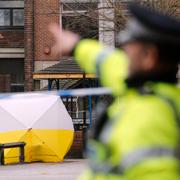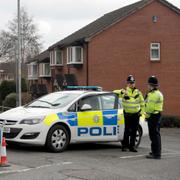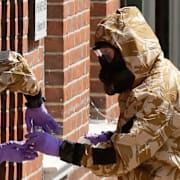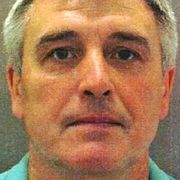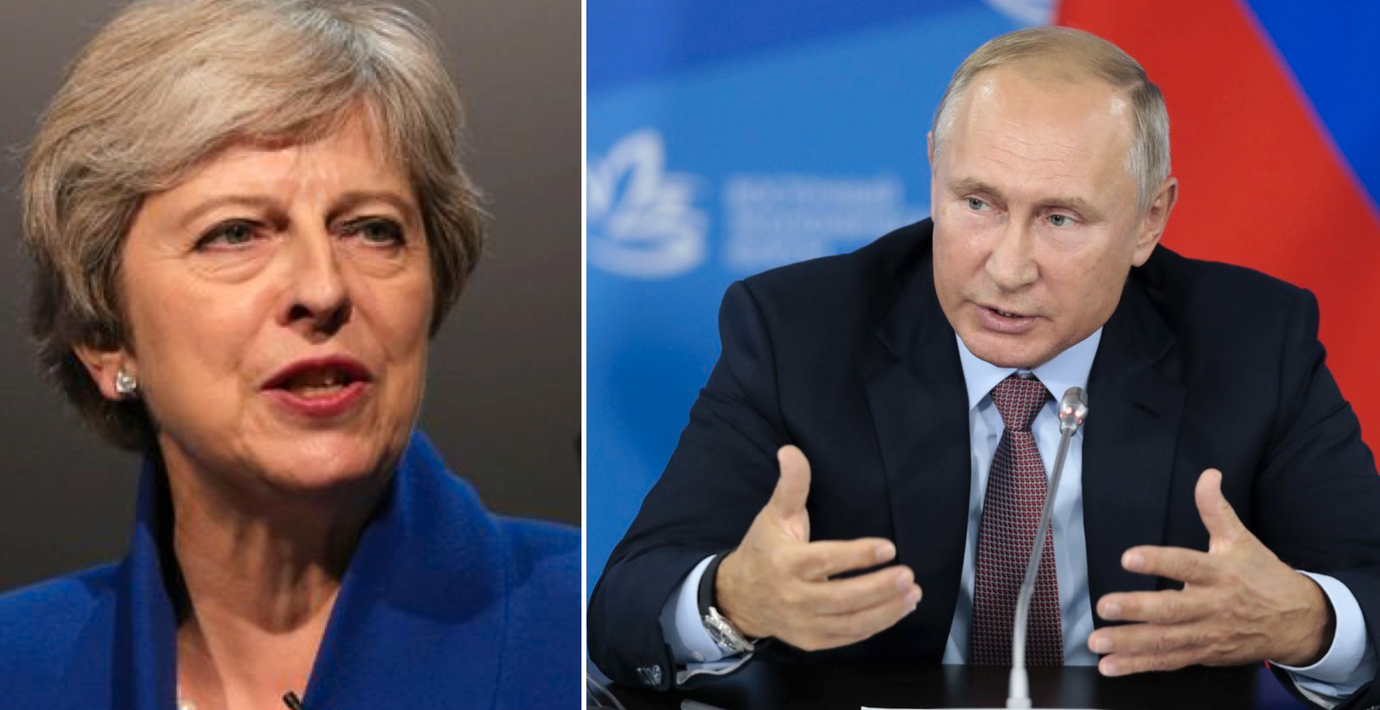
May anklagar Ryssland för att ljuga om giftattacken
Storbritannien anklagar Ryssland för att ljuga om att två civilpersoner låg bakom förgiftningen av ex-spionen Sergej Skripal och hans dotter Julia Skripal.
– Vi har vid upprepade tillfällen bett Ryssland redogöra för vad som hände i Salisbury i mars och de har svarat med förvillanden och lögner, säger premiärminister Theresa May på en pressträff, enligt AFP.
Den brittiska regeringen har anklagat Kreml för att ha gett order om förgiftningsattacken, vilket förnekats från ryskt håll.
bakgrund
Förgiftningen i Salisbury
Wikipedia (en)
On 4 March 2018, Sergei Skripal, a former Russian military officer and double agent for the UK's intelligence services, and his daughter Yulia Skripal were poisoned in Salisbury, England, with a Novichok nerve agent, according to official UK sources and the Organisation for the Prohibition of Chemical Weapons (OPCW). After three weeks in a critical condition, Yulia regained consciousness and was able to speak. She was discharged on 9 April 2018. Sergei was also in a critical condition until he regained consciousness one month after the attack. He was discharged from hospital on 18 May 2018.A police officer was also taken into intensive care after being contaminated when he went to Sergei Skripal's house. By 22 March he had recovered enough to leave the hospital. An additional 48 people sought medical advice after the attack, but none required treatment.In the 1990s, Sergei Skripal was an officer for Russia's Main Intelligence Directorate (GRU) and worked as a double agent for the UK's Secret Intelligence Service from 1995 until his arrest in Moscow in December 2004. In August 2006, he was convicted of high treason and sentenced to 13 years in a penal colony by a Russian court. He settled in the UK in 2010 following the Illegals Program spy swap. Sergei holds dual Russian and British citizenship; Yulia is a Russian citizen, and was visiting her father from Moscow.Later in March, the British government accused Russia of attempted murder and announced a series of punitive measures against Russia, including the expulsion of diplomats. The UK's official assessment of the incident was supported by 28 other countries which responded similarly. Altogether, an unprecedented 153 Russian diplomats were expelled. Russia denied the accusations and responded similarly to the expulsions and "accused Britain of the poisoning."On 30 June 2018 a similar poisoning of two British nationals in Amesbury, seven miles from Salisbury, involved the same nerve agent. A man found the nerve agent in a perfume bottle and gave it to a woman who sprayed it on her wrist. The woman, Dawn Sturgess, fell ill within 15 minutes and died on 8 July, but the man who also came into contact with the poison survived. British police believe this incident was not a targeted attack, but a result of the way the nerve agent was disposed of after the poisoning in Salisbury.On 5 September 2018, British authorities identified two Russian nationals, using the names Alexander Petrov and Ruslan Boshirov, as suspected of the Skripals' poisoning, and alleged that they were active officers in Russian military intelligence.
Omni är politiskt obundna och oberoende. Vi strävar efter att ge fler perspektiv på nyheterna. Har du frågor eller synpunkter kring vår rapportering? Kontakta redaktionen
